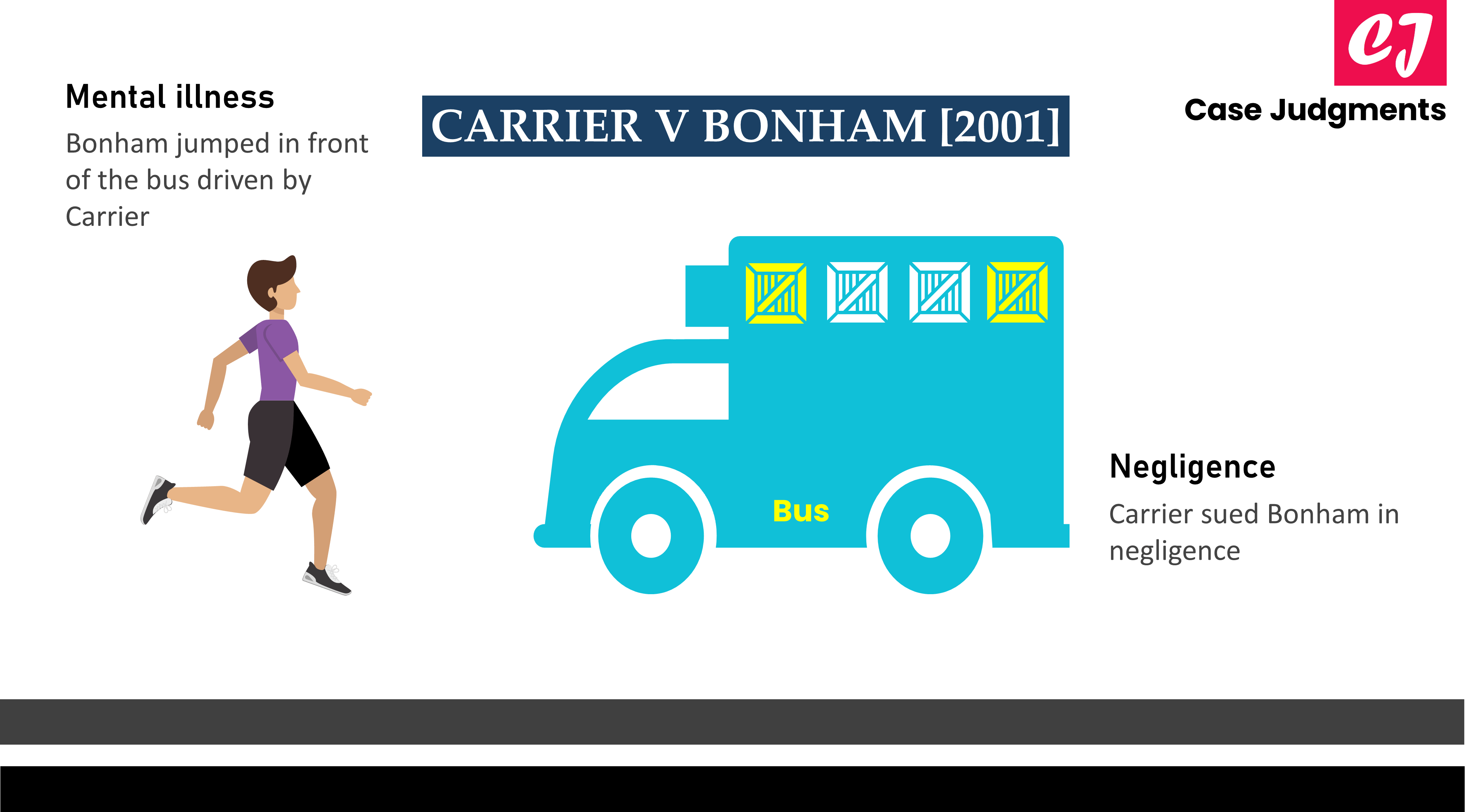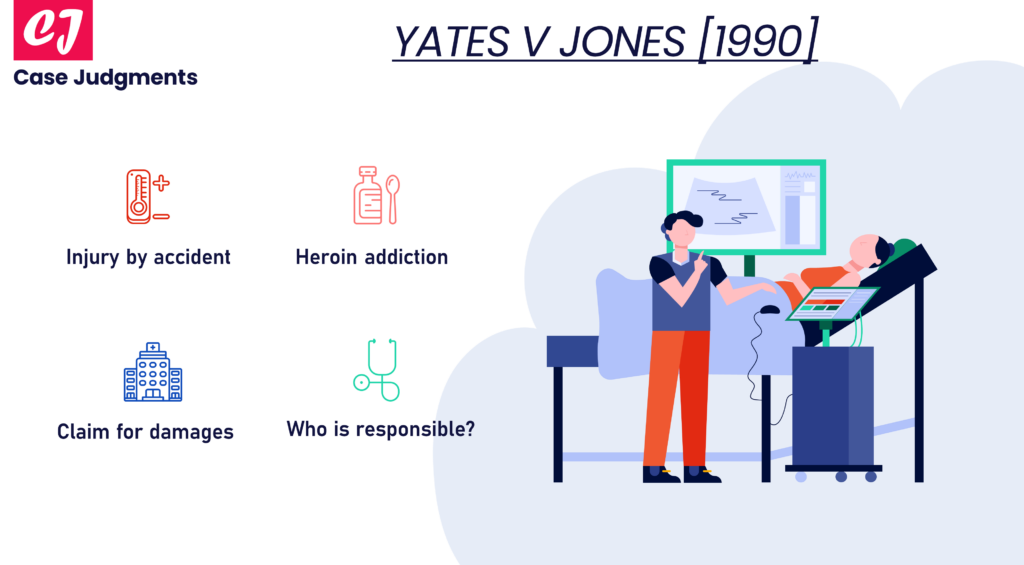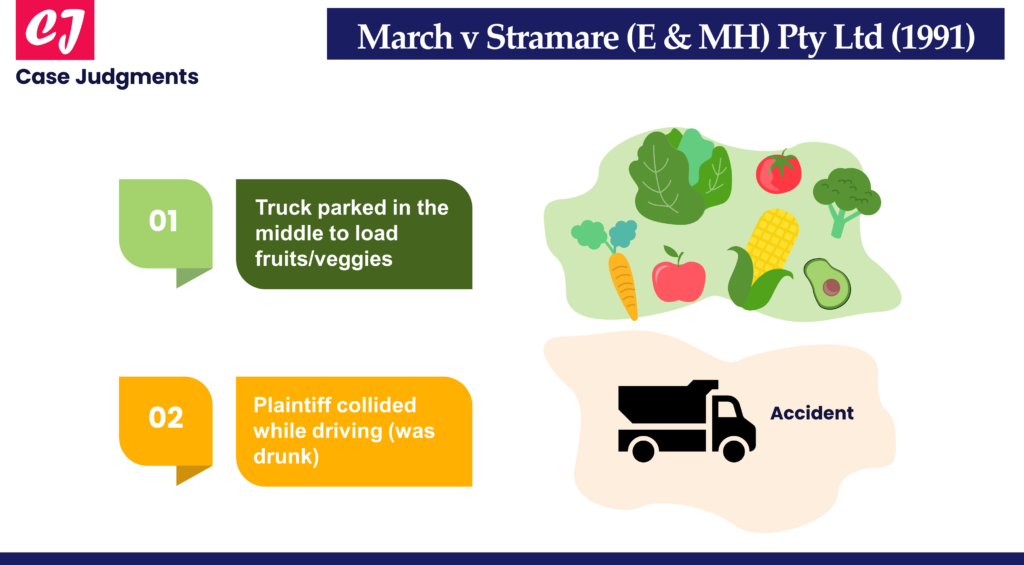
A Quick Summary of Carrier v Bonham [2001]
Carrier v Bonham [2001] is a classic tort law case that deals with the liability of mentally ill individuals for negligence issues. The case discusses the standard of care that has to be exercised by people suffering from mental illness.
The case facts and decision are as under:
| Case name & citation: | Carrier v Bonham [2001] QCA 234 |
| Court: | Supreme Court of Queensland (Court of Appeal) |
| Decided on: | 22 June 2001 |
| The bench of judges: | McMurdo P, McPherson JA, Moynihan J |
| Area of law: | Personal Injury; standard of care |
Facts of the case (Carrier v Bonham)
John Bonham was a chronic schizophrenic who got away from the Royal Brisbane Hospital. In an attempt to commit suicide, Bonham jumped in front of a passing bus driven by Keith Carrier. Carrier suffered from nervous shock as a result of the dreadful incident. He sued Bonham for negligence.
Initial decision
In the first instance, the case was heard in the Queensland District Court. Judge McGill determined that Bonham had not breached the standard of care owed to Carrier, comparing Bonham’s standard of care to that of a child. However, Bonham was judged accountable under the grounds of the English case “Wilkinson v Downton” [1897], which declared that a defendant is liable for willfully doing an act calculated to cause physical harm to the plaintiff.
Judgment on Appeal
On appeal, the case was then heard in the Queensland Court of Appeal. The analogy made by the trial judge between mental patients and children was rejected. It was found that, unlike childhood, mental illness is not a natural progression to adulthood. Thus, the appeal was denied. The Court found that Bonham’s mental state had no bearing on the standard of care he owed to Carrier. The standard of care was decided to be that of a reasonable and ordinary person. Bonham’s mental state had no effect on his liability and negligence towards Carrier.
Judge McPherson said:
“There is no such thing as a “normal” condition of unsound mind in those who suffer that affliction. It comes in different varieties and different shades or degrees. For that reason, it would be impossible to devise a standard by which the tortious liabilities of such people could be judged as a class.”
Moreover, the idea here is that providing greater freedom and liberty to individuals with mental illness is both a humane and beneficial approach. However, this increased freedom comes with the responsibility of holding mentally ill individuals to the same standard of care as an ordinary person.
Hence, the Court held Bonham liable for his acts notwithstanding his inability to be aware that his activities could damage passengers and his lack of understanding of the potential effects of his actions on others.
Conclusion (Carrier v Bonham)
The case throws light on an understanding that the conduct of those who suffer mental illness should be judged according to society’s standards. Their mental illness does not alter the standard of care owed in negligence cases.
List of references:
- http://www.austlii.edu.au/au/journals/PlaintiffJlAUPLA/2001/80.pdf
- https://www.judiciary.uk/wp-content/uploads/2015/07/dunnage-v-randall-uk-insurance-ltd.pdf
- https://s3.studentvip.com.au/notes/24018-sample.pdf
YOU MIGHT ALSO LIKE:
MORE FROM TORT LAW:

